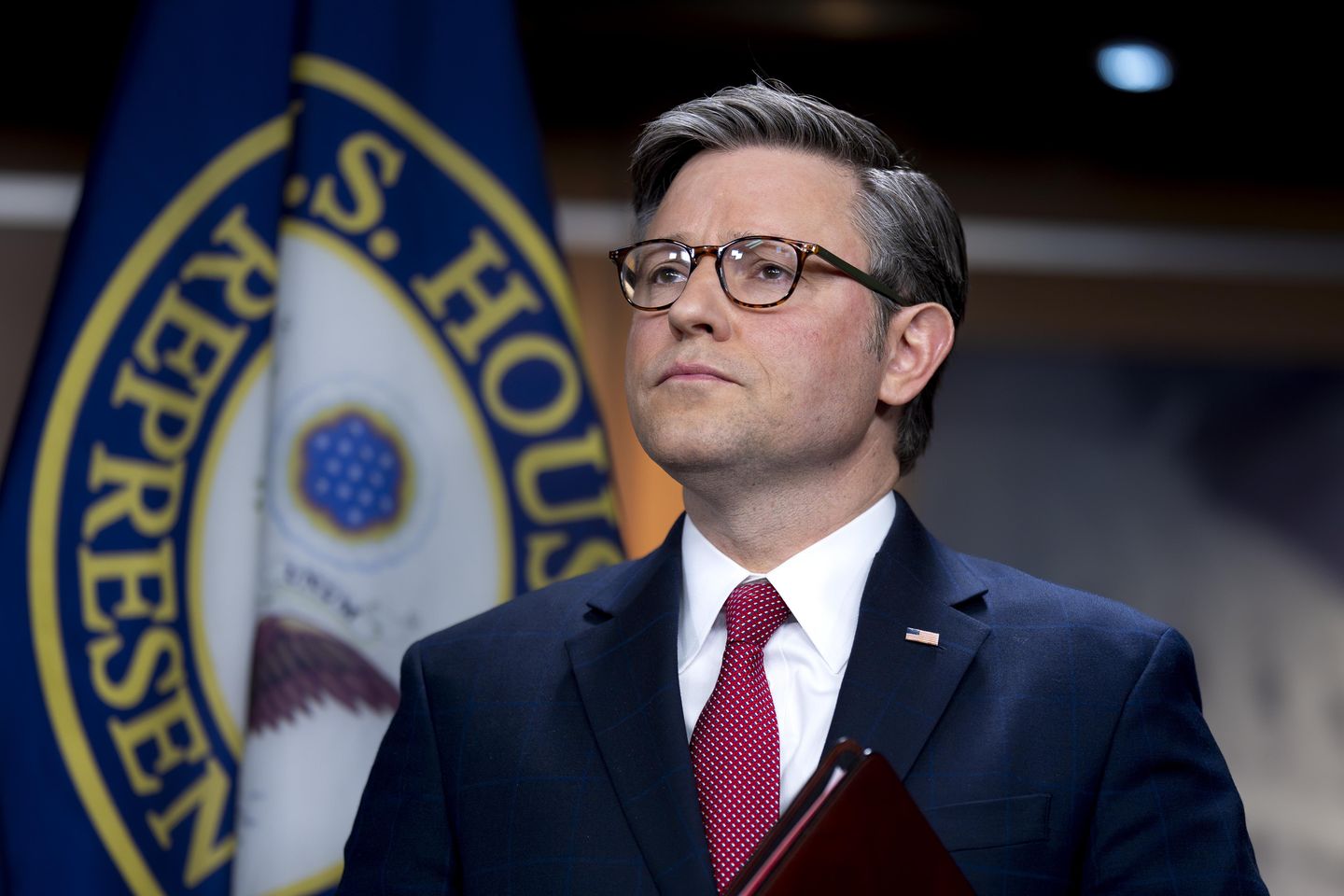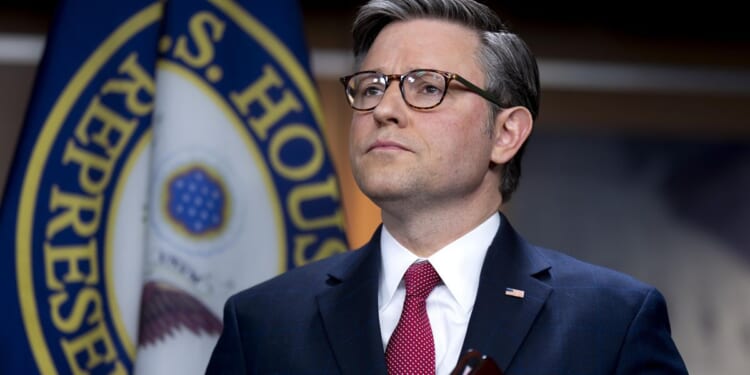
House Speaker Mike Johnson again suffered a wave of defections from members of his party to pass a stopgap bill, moving Congress a step closer to beating the Friday shutdown deadline.
The same as with the stopgap in January, House Democrats bailed out Mr. Johnson to pass the new two-step funding patch on Thursday. It passed the House in a 320-99 vote, with more Democrats voting in favor of the measure than Republicans.
Rep. Chip Roy, Texas Republican, argued on the House floor that the bill would continue funding Democratic policies including the White House’s border policies, which Republicans have relentlessly hammered.
“We’re going to continue funding this government at the Nancy Pelosi omnibus spending level, that is a level that will continue, by the way, to fund all the priorities we oppose,” Mr. Roy said.
In all, 97 Republicans voted against the bill.
The archconservative House Freedom Caucus wanted to punt the spending fight until September, which would trigger an automatic across-the-board 1% spending cut.
The Senate is expected to give final approval to the new stopgap bill later Thursday.
The two-step short-term funding patch, which sets deadlines for March 8 and March 22, was the product of a deal Mr. Johnson struck with Senate Democrats and appropriators from both parties. It tees up future votes on two packages that include all the annual spending bills.
Rep. Rosa DeLauro of Connecticut, who is the top Democrat on the House Appropriations Committee, said the deal would allow lawmakers to put an end to the ongoing spending fight, and shift focus to President Biden’s foreign aid request for Ukraine, Israel and Taiwan.
“To those ends, let this be our last continuing resolution,” Ms. DeLauro said in a floor speech.
The first package includes measures to fund the VA, agriculture, interior, transportation, energy and water, and commerce, justice and science, and is expected to be voted on early next week before the March 8 deadline to fund those government operations.
However, the massive package is contrary to the House GOP’s goal of passing spending legislation one by one. Some lawmakers have been critical of Mr. Johnson‘s approach, arguing that the latest deal was struck behind closed doors without input from members.
Rep. Thomas Massie, Kentucky Republican, said that breaking the bills into smaller packages is exactly how Congress has handled spending in years past, and breaks the promise of passing bills one at a time.
“This is exactly what we said we would not do at the beginning of this Congress,” Mr. Massie said. “This is the exact way that it’s been done for the 12 years that I’ve been here.”
Indeed, it has been decades since Congress passed individual spending bills.
Mr. Johnson said that avoiding a massive, catchall spending bill — what is known as an omnibus — was a break from Congress‘ status quo.
“This is the way it works, every year, always has,” Mr. Johnson told reporters Thursday. “Except that we’ve instituted some new innovations. We broke the omnibus fever, right? That’s how Washington has been run for years.”












